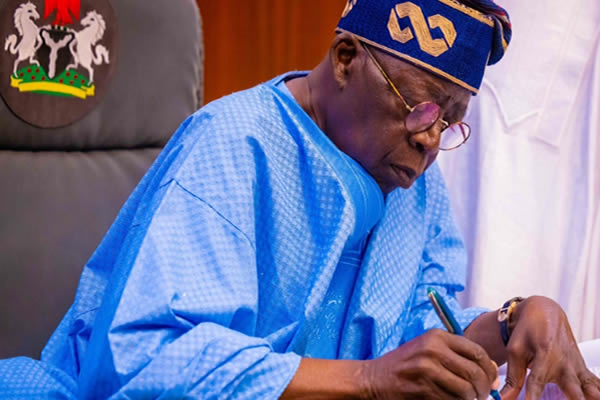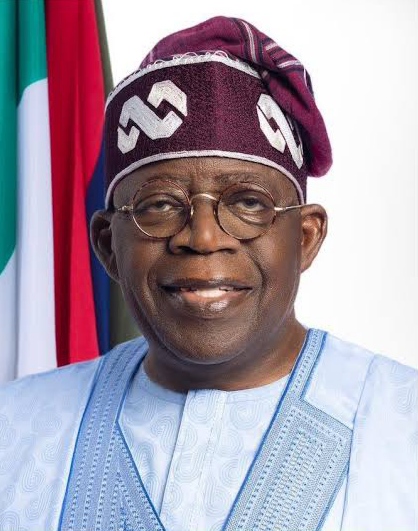In a move aimed at mitigating economic hardship and creating a more business-friendly environment, President Bola Ahmed Tinubu has signed four Executive Orders that curbs arbitrary taxation policies in Nigeria.
The announcement was made by the Special Adviser to the President Dele Alake, during an interactive session with State House Correspondents on Thursday.
Shedding light on the key provisions of these orders, Alake said the orders are in furtherance of President Tinubu’s commitment to creating a business-friendly environment.
The first Executive Order, known as the Finance Act (Effective Date Variation) Order, defers the implementation of changes in the Finance Act from May 23, 2023, to September 1, 2023.
TheNewsGuru.com (TNG) notes that the National Tax Policy (NTP), first published in 2012, underwent a review in 2016 to align with the government’s goals of creating a business-friendly environment and simplifying taxation.
However, some tax changes did not adhere to the 90-day notice period prescribed by the 2017 NTP, putting businesses in violation of the new tax regime even before the changes were gazetted.
These inconsistencies and uncertainties prompted President Tinubu’s deferral to ensure that taxpayers receive a 90-day notice period before any tax changes take effect, allowing for better preparation and compliance.
The second Executive Order, the Customs, Excise Tariff (Variation) Amendment Order, also shifts the start date of tax changes from March 27, 2023, to August 1, 2023.
This alteration provides businesses with additional time to adapt to any modifications in customs and excise duties, enabling them to make informed decisions and mitigate potential disruptions.
Recognizing the impact of excessive taxation on certain sectors, President Tinubu has suspended the five per cent Excise Tax on telecommunication services, the Excise Duties escalation on locally manufactured products, and the newly introduced Green Tax on single-use plastics.
The Excise Tax on telecommunication services was introduced as part of the 2022 Fiscal Policy Measures and Tariffs Amendments Order and is applicable to all telecommunications services provided in Nigeria, including postpaid and prepaid services.
However, this tax faced significant controversy, as industry players raised concerns about multiple taxes on their operations and the potential negative impact on the sector’s growth and affordability of services.
The Excise Duties escalation on locally manufactured products on the other hand was introduced as part of efforts to enhance revenue generation and promote local production.
It involved increasing excise duties on various goods manufactured within Nigeria, presenting challenges for businesses, as it affected production costs, competitiveness, and ultimately, their ability to thrive in the market.
The Green Tax, including the Single-Use Plastics (SUPs) tax, aimed to reduce plastic waste and promote environmental sustainability, by imposing an excise duty of 10 per cent on single-use plastics, including plastic containers, films, and bags.
The tax aimed to discourage the use of SUPs and encourage the adoption of more sustainable alternatives.
Nevertheless, concerns were raised regarding the impact on businesses and the need for a comprehensive approach that considers the country’s net zero plan without negatively affecting the economy.
Additionally, the President has ordered the suspension of the Import Tax Adjustment (IAT) levy on certain vehicles, which initially took effect on June 1, 2023. This decision aims to ease the financial burden on individuals and businesses involved in the importation of affected vehicles.
The IAT levy was introduced to adjust taxes on imported vehicles based on engine size and value, imposing a two per cent tax on vehicles with engine sizes ranging from 2 to 3.9 litres, and a four per cent tax on vehicles with engine sizes of 4 litres and above.
The levy also allows the federal government to charge N75 per litre of beer, stout or wine imported into Nigeria.
The IAT aimed to generate revenue and encourage local vehicle manufacturing, but imposed additional costs on importers and affected the affordability of these items.
Over the past month, Nigerians have expressed their concerns and frustrations following the abrupt removal of subsidies on fuel and foreign exchange by President Tinubu, after his swearing-in on May 29.
The sudden removal of subsidies led to increased fuel and commodity prices, as well as a weakened purchasing power, placing a significant burden on Nigerians.
However, by issuing these orders for the suspension of these taxes, the President aims to ameliorate the adverse impacts of tax adjustments on businesses and provide much-needed relief in these challenging times.
These measures also signify a deliberate effort to strike a balance between revenue generation and ensuring the sustainability and growth of businesses in Nigeria.
The signing of these Executive Orders has been hailed in some quarters as a significant step towards curbing arbitrary taxation policies, promoting stability, and providing much-needed relief to businesses and households.
It is expected that these measures would contribute to a more conducive business environment, alleviating the burden of taxation on citizens and fostering sustainable growth, in line with economic recovery efforts.

